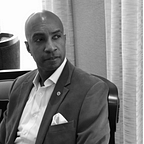Black History Month: African Americans Serving Our Country
War has always been a part of our lives, though many people are so removed from the conflict that the impact of lives lost, homes desecrated, and countries embroiled in constant conflict doesn’t influence them. In this respect, we’re both lucky and blind.
However, knowing our history is so important. It’s not only so we don’t repeat the mistakes of our past, but also so we properly remember the people who have given their lives for our freedom. Though a majority of servicemembers hail as Caucasian, we must remember that many ethnicities and many women have put their lives on the line; all of them should be properly remembered.
The USO’s Support of African American Troops
Surprisingly, the United Service Organizations (USO) has always been an advocate for all people of nationalities and ethnicities who serve in the military. In 2016, PBS aired a documentary “USO — For the Troops.” It discussed the USO’s determination to stand by its policy and welcome African Americans through its doors, even amongst extreme racism in the south, such as in Hattiesburg, Mississippi.
Sadly, not all organizations have shown that kind of support to African Americans. In honor of Black History Month, here are some noteworthy African Americans who served throughout history, even when they weren’t wanted.
African Americans in WWI
Though many firsts for African American soldiers occurred during WWII, “more than 380,000 African Americans served in the Army during World War I, according to the National Archives. Approximately 200,000 of these were sent to Europe,” Army Colonel Richard Goldenberg said in a U.S. Army article.
Among those servicemembers sent to France were black soldiers of New York’s 15th Infantry Regiment, later named the 369th Infantry Division. This group was known by many names: Black Rattlers, Men of Bronze and Hellfighters of Harlem.
Though these servicemembers had overcome prejudice in the U.S. to the extent they were able to serve in the military, they still encountered issues overseas. Once they arrived in France, for instance, they were thrown into labor battalions that built roads, bridges, and trenches instead of seeing combat.
This situation continued for months until the 15th Infantry Regiment’s commanding officer, William Hayward, was able to persuade a general at headquarters that his troops were ready for combat. Hayward’s persuasion was effective because of the regimental band that was a part of the unit.
This band played in hospitals and camps around the country. Not only did the band provide entertainment and a morale boost, but it is “credited with introducing jazz music to France during the war,” according to Goldenberg. Whoever says music isn’t a powerful tool has never been muddy in a trench, sick in a hospital bed, secluded from one’s family or struggling to keep away the demons in one’s mind.
The Tuskegee Airmen of WWI
During World War II, the Tuskegee Airmen became the first African American fighter pilots, flying the P51 Mustang. The group began as an experiment to see if African Americans were capable of being pilots, navigators, bombardiers, maintainers, support staff, and instructors.
The first class consisted of 13 students, five of whom graduated and became known as the first black pilots in U.S. history.
Patton’s Panthers
Another pivotal group of primarily black soldiers was the 761st Tank Battalion of WWII, otherwise known as Patton’s Panthers. “During 183 days of continuous combat, the 761st fought all over northern and central Europe, from the Battle of the Bulge at Tillet, France, to the Battle of the Rhine, eventually making it all the way to Austria,” says Elizabeth M. Collins, USO contributing writer.
This tank unit fought hard and fast and were rewarded for their efforts; they received campaign ribbons, Silver Stars, Bronze Stars, and Purple Hearts. Most of all, they received the Presidential Unit Citation. But as Collins reminds us, “The cost was high, however, with 36 men killed in action — 22 in November alone.”
Other Important African American Servicemembers
Danielle DeSimone, another USO contributing writer, highlights a female WWII African American servicemember, Oleta Crain. DeSimone notes, “Of the 300 women who entered officer training during World War II, Crain was one of only three Black women in the program. After the war, Crain was the only female Black officer to be retained by the military.”
Crain served in the Women’s Army Corps and the Air Force. After earning her spot in the military, she continued fighting for racial equality, always raising questions regarding prejudice and discrimination. This fight for justice continued even after she retired from service.
The USO article Five Firsts in African American Military History spotlights five unique individuals who fought against prejudice and segregation to help defend their country. These people include:
- Phyllis Mae Dailey, the first African American woman to serve in the Navy Nurse Corps
- James Anderson Jr., the first African American Marine awarded the Medal of Honor
- Daniel James Jr., the first African American four-star general
- Freddie Stowers, a WWI hero posthumously awarded the Medal of Honor
- Jeanine McIntosh, the first African American female aviator in the U.S. Coast Guard
There are so many other African American service members who could and should be mentioned and remembered. There were so many of them who fought and continue to fight for a country that still struggles to recognize their equality.
During Black History Month, now is the time to realize and respect moments in history where African Americans paved the way for other service members. As March begins, don’t forget the contributions of these servicemembers but continue to learn about them, honor them and overcome barriers to equality.
This article was posted originally by the author at AMUEdge.com
